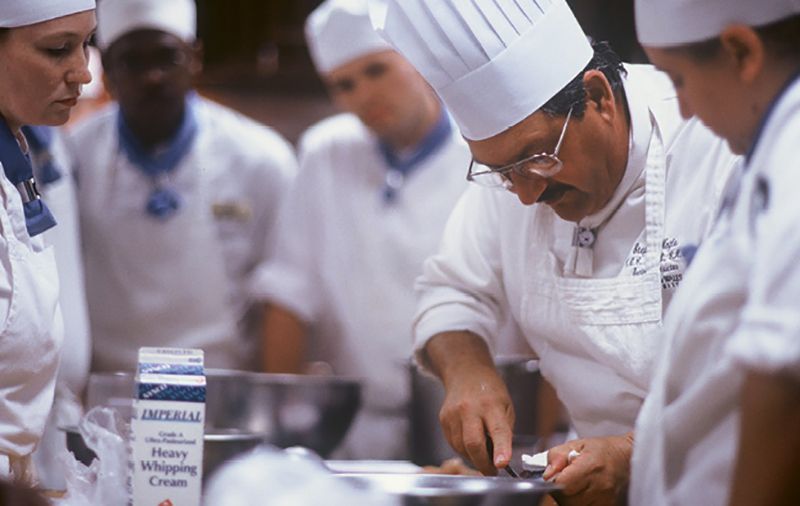- 1984: Johnson & Wales Arrives - The Providence, Rhode Island-based school opens its Charleston branch in a rented space in Port City Center. By 2002, more than 100 students are enrolled in its comprehensive culinary and hospitality programs. Due to expansion issues, the institution, which helped spur Charleston’s culinary emergence, moves to Charlotte in May 2006. Trident Technical College’s Culinary Institute of Charleston attempts to fill the void left by Johnson & Wales’s exit.
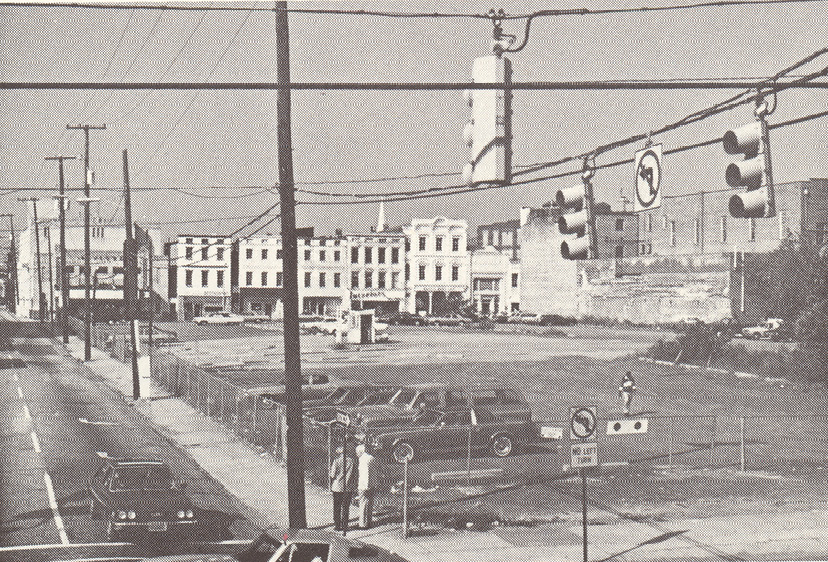
(Courtesy of Historic Charleston Foundation)
- September 2, 1986: Charleston Place Hotel Unveiled - Charleston Place debuts at the corner of Market and King streets after a decade-long battle with preservationists and marks the beginning of a downtown renaissance after years of urban decay.
- 1989: Coastal Conservation League Launches - The organization, founded by Dana Beach, opens an office on King Street with a staff of three. For the first time, citizens of the Lowcountry begin to organize in order to challenge pollution and urban sprawl and fight for our natural resources. Meet the league’s newn executive director, Laura Cantral.
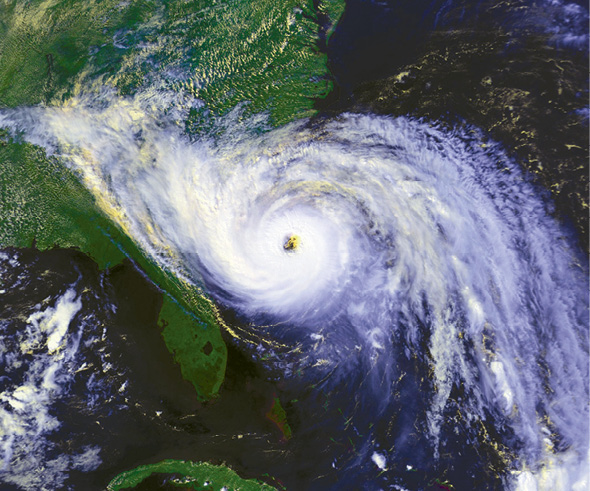
(Courtesy of NOAA)
- 1989: Hugo Hits - The eye of the Category 4 hurricane hits the city before midnight on September 21, destroying many houses, as well as untold boats and trees. Mayor Riley and Police Chief Reuben Greenberg stand firm and help the city recover. The catastrophic storm kills 107 people and causes $10 billion in damage. Charlestonians’ timelines are forever altered to “Before Hugo” and “After Hugo.” Relive the Category 4 Hurricane through local accounts.
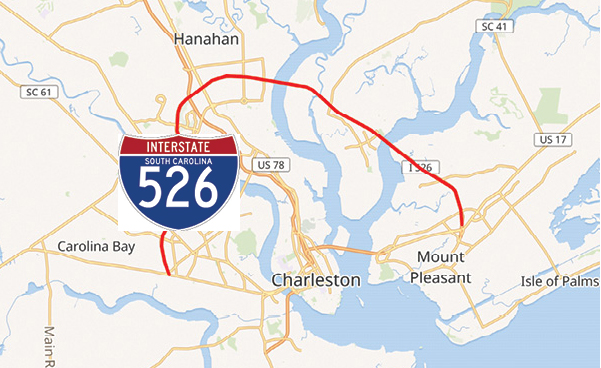
(Courtesy of WIkipedia-Maps)
- 1992: I-526 Opens - Interstate 526, a 19.26-mile roadway connecting North Charleston to Mount Pleasant, welcomes traffic on June 21. Perhaps the most dramatic result is the development of once-rural Daniel Island into a 4,000-acre high-end residential community.
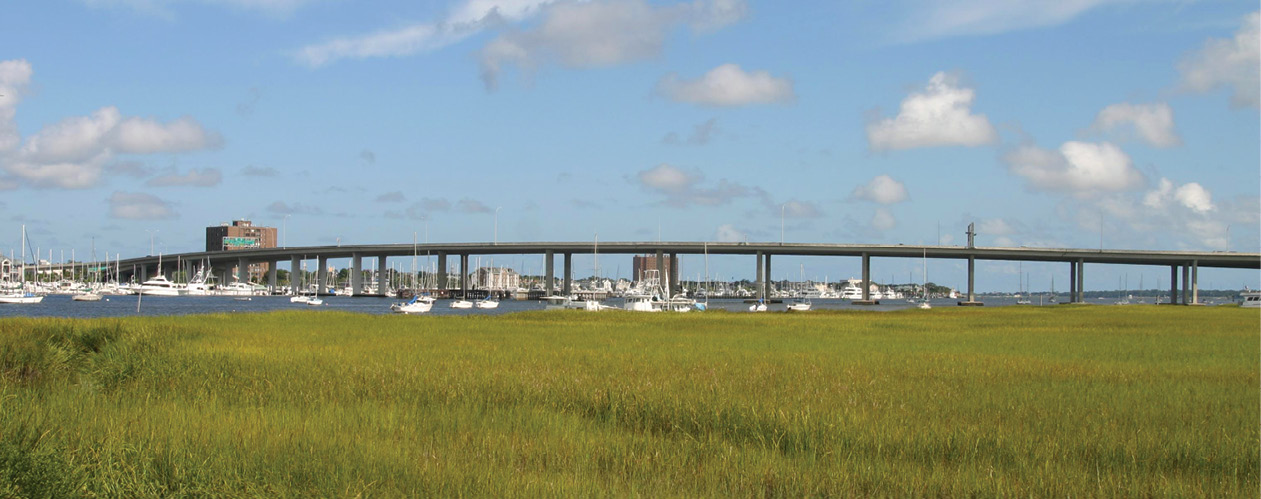
(Courtesy of PennySpender1983)
- 1993: James Island Connected - After decades of debate and five years of construction at a cost of nearly $125 million, the 2.9-mile expressway to Charleston is finally complete, easing the morning commute for those living west of the Ashley and increasing development on the island.
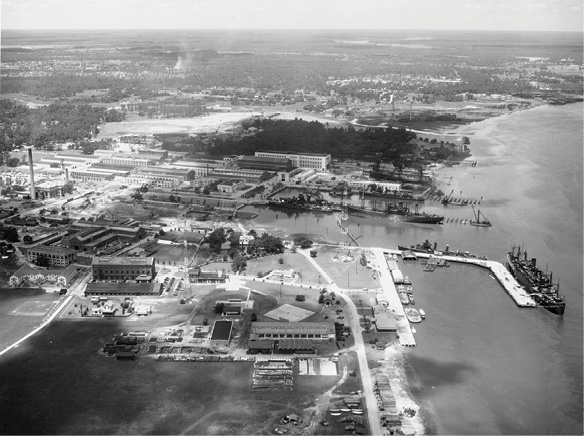
(Courtesy of WIkipedia)
- 1993: Base Closing Announced - With nearly a century of US Naval presence on the harbor, it’s announced that the Charleston Navy Base, the area’s largest employer, will be decommissioned. Some 15,000 civilian and military jobs are lost, temporarily setting back the local economy. The General Assembly establishes the Charleston Naval Complex Redevelopment Authority to manage the reuse of the land and bring new jobs and economic development to the area.

(Courtesy of Getty Images)
- 1995: Citadel Corps Goes Co-ed - Thirty-odd years after The Citadel becomes racially integrated, Shannon Faulkner becomes the first woman admitted to the Corps of Cadets on August 15 after a bitter legal battle.
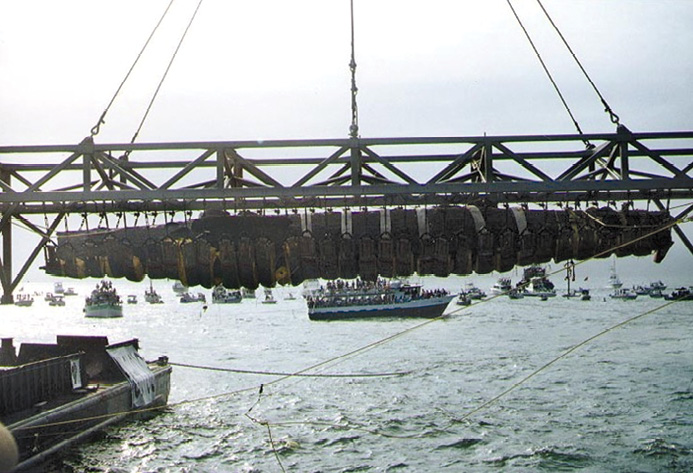
- 2000: CSS Hunley Raised from the Depths - After resting on the ocean floor for 136 years, on August 8, the submarine, found by a team of underwater archaeologists led by novelist Clive Cussler and the state of South Carolina, is raised. The remains of the ship’s eight crew members are buried with full military honors at Magnolia Cemetery in April 2004.
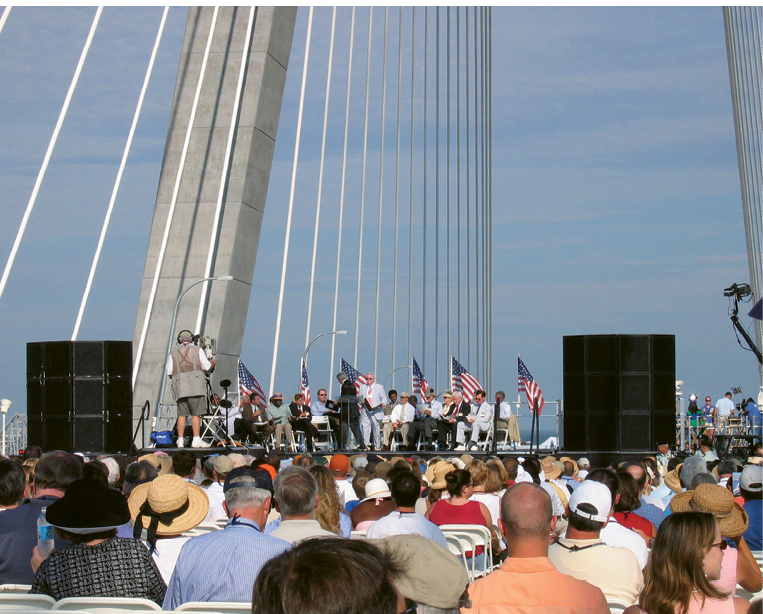
- 2005: Arthur Ravenel Jr. Bridge Complete - Named for the prominent businessman and politician who helped secure funding for its nearly $700 million construction, the new Cooper River Bridge opens July 16 and becomes the longest cable-stayed bridge in the Western Hemisphere. Its pedestrian-bike path swiftly becomes a popular recreational attraction.

(Courtesy of Charleston Wine + Food)
- 2006: Rise of Cuisine - While a handful of restaurants in the early 1990s laid the foundation for the city’s culinary prowess, the inaugural Charleston Wine + Food festival cements its reputation on a national level. Fifteen years later, the five-day extravaganza continues to elevate local talent and dishes up an $18.6-million economic impact.
- 2006: Clyburn Elected Majority Whip - US Rep. James Clyburn, who in 1992 became the state’s first African American congressman since 1897, is unanimously elected majority whip of the US House of Representatives on November 16. He is the second African American to reach the third-highest-ranking position in the US House.
